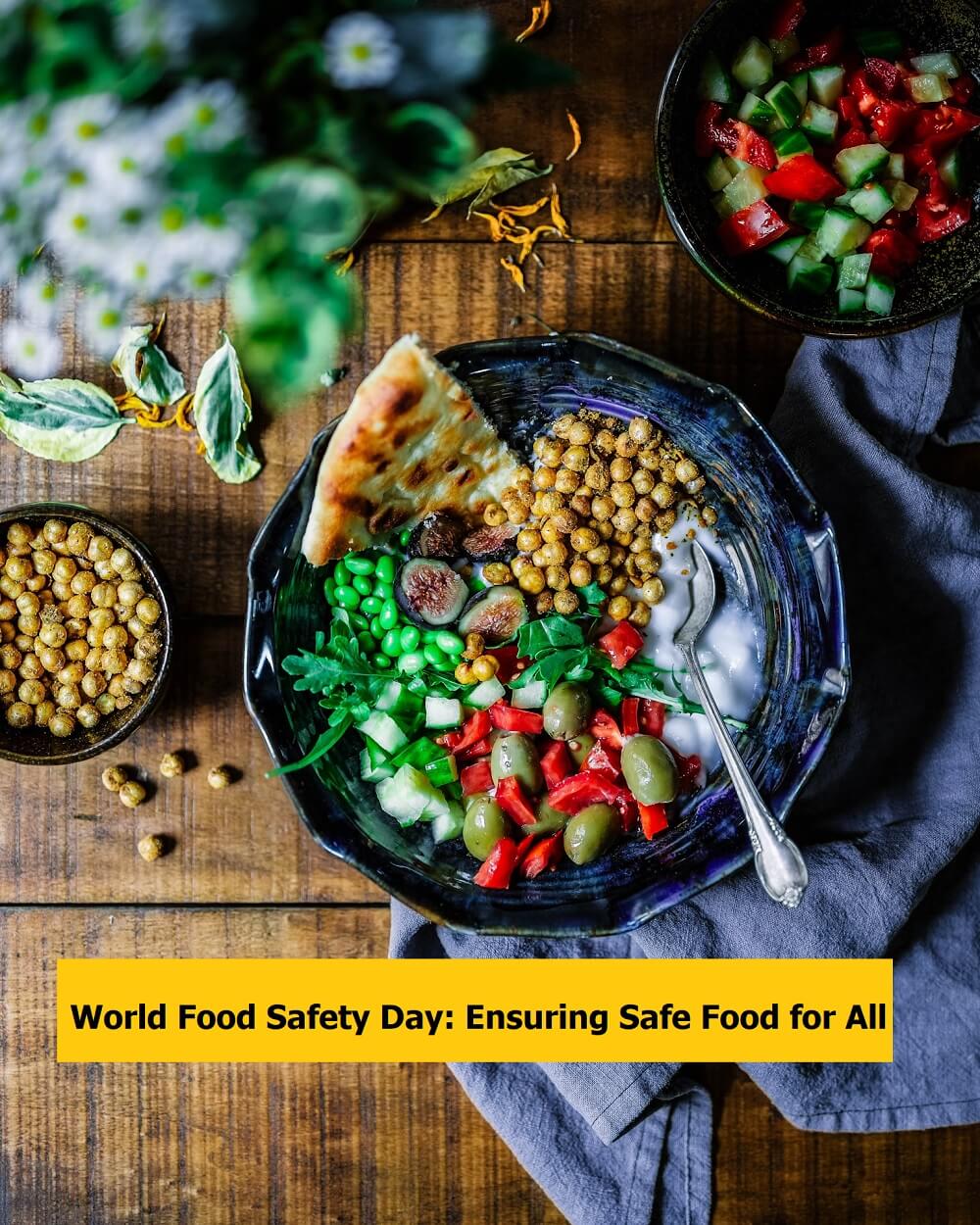
World Food Safety Day 2025 Observed in Nepal
The Department of Food Technology and Quality Control, under the Ministry of Agriculture and Livestock Development, Government of Nepal, has been observing Food Hygiene Day since 2065 BS.
This year, the 17th National Food Hygiene Day is being marked alongside the 7th World Food Safety Day on 7 June 2025 (Jestha 24, 2082 BS), as declared by the 73rd United Nations General Assembly in 2018. The global theme is "Food Safety: Science in Action" and in Nepal, it is observed with the national slogan "Food Hygiene in Products: The Necessity of Science."
Global Health Concerns and Financial Impact
According to the World Health Organization, over 600 million people globally suffer from foodborne illnesses each year. These diseases cost over USD 15 billion annually in treatment.
Maintaining food safety and quality by minimizing such risks requires scientific standards and well-managed hygiene systems. Effective regulation based on verified evidence is crucial to address these challenges.
Nepal’s Legislative Response and Stakeholder Roles
The newly enacted Food Hygiene and Quality Act, 2081 assigns responsibilities to all food business operators to maintain hygiene throughout every stage of the food chain.
All stakeholders—regulatory agencies, farmers, producers, processors, retailers, and consumers—must actively participate to ensure safe and quality food.
International Trade and Global Standards
As a member of the World Trade Organization (WTO), Nepal must adhere to science-based food safety and quality standards.
Nepal aligns national standards with those of the Codex Alimentarius Commission (CAC), the global body for food standard-setting. Monitoring, certification, inspection, testing, and surveillance are all conducted accordingly.
National Efforts and Institutional Strengthening
Nepal has made food safety a national priority. It is strengthening policy, legislation, and implementation through the Food Hygiene and Quality Act, 2081 to protect public health and consumer rights.
Actions include:
-
Strengthening government food laboratories
-
Expanding mobile testing labs
-
Conducting research and innovation
-
Improving enforcement through scientific tools and methods
Public Health and Constitutional Rights
Safe, nutritious, and hygienic food is vital to prevent diseases and ensure well-being. Food safety is directly linked with health, nutrition, environment, and economic growth.
Nepal’s constitution guarantees every citizen the right to quality goods and services as a fundamental right.
Commitment to Global Safety Mechanisms
Nepal actively engages with the WTO’s SPS Agreement and harmonizes its policies with global standards.
It also cooperates with INFOSAN (International Food Safety Authorities Network) to exchange information and manage food safety risks.
Science-Based Safety: A National Imperative
Ensuring food safety means preventing contamination by physical, chemical, biological, or toxic substances. Any gap in scientific understanding across the food chain can harm human health.
Hence, science-based principles are essential at every stage—from production to consumption. This year’s global slogan emphasizes the critical role of science in ensuring food hygiene.
Lessons from Public Events and Policy Execution
Contaminated food, especially during festivals or public gatherings, has caused serious health impacts, including death.
To reduce such risks, the Government of Nepal has been implementing the National Food Safety Policy, 2076, focusing on:
-
Facilitating food industry compliance
-
Strengthening research and resources
-
Enhancing inter-agency coordination
The Food Hygiene and Quality Act, 2081, was enacted by the Federal Parliament in Baisakh 2081 and came into effect from Shrawan 2081. This Act plays a crucial role in regulating hygiene and quality standards for both domestic and imported food products.
Institutional and Regulatory Advancements
Nepal now has a clear constitutional, legal, and policy foundation for food safety.
To enhance credibility and consumer confidence, modern laboratories and regulatory institutions are being developed in line with international norms for scientific monitoring, supervision, and quality testing of food products.
Shared Responsibility for a Healthier Future
Farmers, livestock keepers, food entrepreneurs, and all related sectors must fulfill their responsibilities with commitment.
With collective efforts, Nepal can make its food products globally competitive and contribute significantly toward the national goal of "Prosperous Nepal, Happy Nepali."
Annual Day International Days and Weeks

